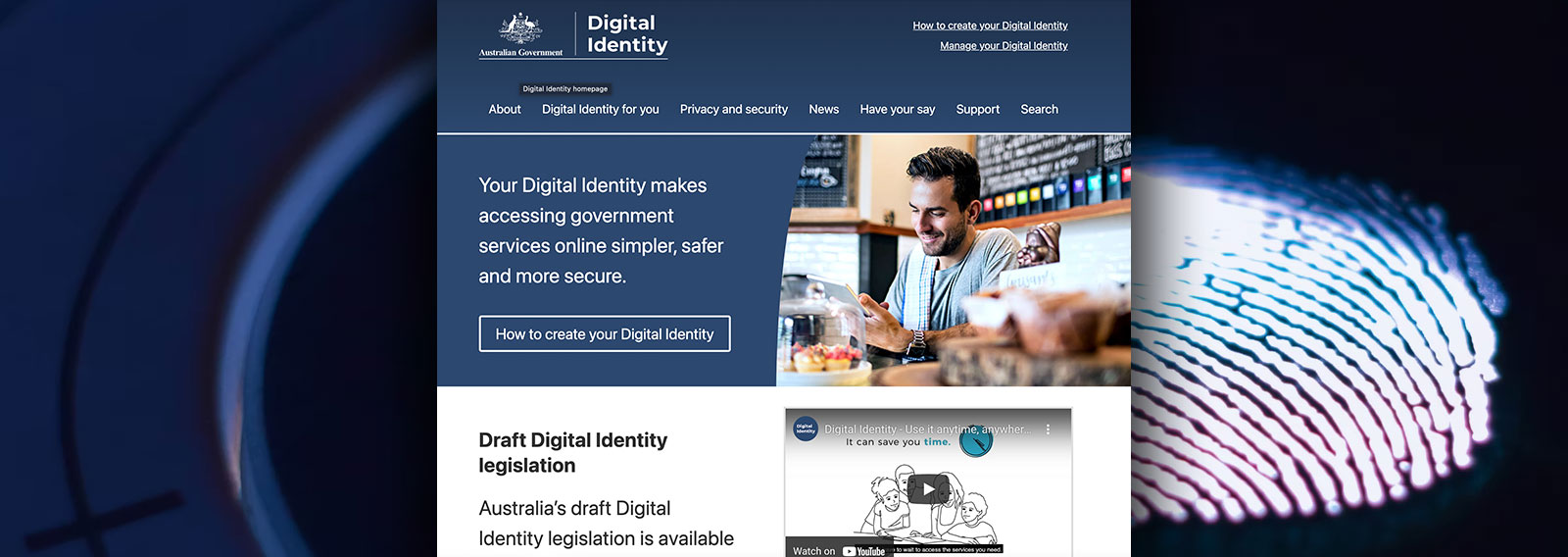COVID-19 has undoubtedly provided the staging ground for a new technocentric era for Australian society.
Mandated QR check-ins, cashless businesses, vaccine passport apps and even a quarantine surveillance program with facial recognition are all part of an accelerated push towards a fully digitalised economy.
The fundamental means by which we navigate daily life in Australia is changing.
These rapid rollouts of new digital interfaces irrevocably alter how we interact with the world around us. Which begs the question, ‘to where does this all lead?’ To a technological utopia, or cyber authoritarianism?
Australia’s political climate in the pandemic era has been marred by a level of government overreach unmatched in our modern history. The autocratic powers conferred in a ‘state of emergency’ have allowed Premiers to enact mandates with little federal oversight and zero democratic regulation. As a result, public trust in our elected representatives is at an all-time low, and once trusting Australians are beginning to question the agenda behind this takeover of technology.
Is the intent behind these innovations the beneficent desire to provide safety and security in a perilous world? Or are they merely a means to further entrap us within systems and policies that advance governmental control and curtail individual freedoms?
The ‘Digital Identity System’ is the latest digitisation initiative to be proposed by the Morrison government and has been heavily scrutinised due to its potential for ministerial misuse.
‘The System’ is a platform that links together individuals’ official forms of identification for verification purposes across a range of service providers; including accredited businesses and government agencies. In simplified terms, it’s being presented as a ‘safe, secure and convenient way to prove who you are online,’ to reduce ‘identity fraud and cybercrime.’
On October 1st, after 6 years of development by the Digital Transformation Agency (DTA), the Australian Government released the exposure draft of the Trusted Digital Identity Bill 2021. The purpose of this bill is to ‘establish permanent governance structures’ and ‘enshrine in law a range of privacy and consumer protections,’ for the express intent of securing public trust in the safety, security and integrity of the system.
These protections include, but are not limited to; the assurance that participation in the program will remain voluntary, restrictions on the sharing of information without consent, safeguards on biometric information, limitations on data collection and mining, bans on profiling and so on.
The Digital Identity framework may ultimately become something akin to China’s oppressive social credit system.
The privacy laws contained within the bill do address many of the concerns individuals are likely to raise in relation to the sharing of sensitive data. However, even when enshrined in law, there remains a cause for wariness when it comes to the Digital Identity System.
While seemingly benign on the surface, this technology is vulnerable to exploitation that would see Australians further disempowered. Some critics of the scheme have expressed concern that this framework may ultimately become something akin to China’s oppressive social credit system.
That may read a touch conspiratorial, however, as we’ve seen since the state of emergency began, theory can swiftly become reality with a few surreptitious adjustments to policy.
The DTA has openly stated that ‘in the future, proposed Digital Identity legislation will allow the Australian Government to expand the Digital Identity system to a whole of economy solution.’ While it cannot be presumed exactly what that will look like in practice, one can say with confidence that the intention is for this system to be altered and broadened over time.
Imagine a government-run platform that integrates all aspects of your digital life; allowing access to your medical records like vaccination status, integrating with the QR code system and location tracking, syncing with your bank accounts, surveilling your internet activity, connecting biometric facial recognition with policing initiatives and so on.
The Digital Identity program may be bound by laws that purport to offer certain protections and assurances to users, but can we trust that the government will uphold these laws?
In April 2020, the Minister for Health, Greg Hunt, made a determination under the Biosecurity Act 2015 to ensure the public ‘that data from COVIDSafe is only used to support state and territory health authorities’ contact tracing efforts, and only to the extent required to do so.’
In spite of this, in at least 6 instances, police across several states have attempted to (and in some cases have accessed) tracking data from the COVIDSafe app, in the pursuance of unrelated crimes. On one such occasion, Queensland Police were granted a warrant to access QR-code information simply on the basis of a suspicious activity report.
Perhaps more concerning than these frowned upon breeches is the increasing prevalence of amendment bills to key privacy and security acts. These revisions have significant impact on the privacy and freedoms Australians are entitled to, and yet they’re receiving royal assent without any public input.
In an amendment to the Surveillance Devices Act 2004 titled the ‘Surveillance Legislation Amendment Bill 2021,’ the Australian police were given unprecedented power for online surveillance, data interception and alteration. The amendment allows police to access your social media account, delete and alter data, collect information and even pose as you. The Human Rights Law Centre said the bill has insufficient safeguards for free speech and press freedom, and Digital Rights Watch called it a ‘warrantless surveillance regime.’
How can we have faith in a legal system in which legislation can be enacted and amended at will, without public consultation?
The Western Australian Public Health Act 2016 was also recently amended to include ‘Serious Incident Powers’ (Section 158) which allow authorities to force a person to ‘undergo medical observation, medical examination, medical treatment or be vaccinated’ and ‘an authorised officer or police officer may use reasonable force to ensure that the direction is complied with,’ including apprehending, detaining and undressing the individual.
These are just two examples of federal and state governments solidifying their dictatorial powers by enshrining them in legislation. How can we have faith in a legal system in which legislation can be enacted and amended at will, without public consultation? An administration that governs in such a manner operates entirely outside the definition of democracy. And on that basis, how can we be confident in the enduring integrity of a Commonwealth run platform hosting sensitive information?
The Digital Transformation Agency has already acknowledged the likelihood of impending modifications to its policy and states that Digital Identity ‘legislation will be developed in a way that recognises the potential changes being made to broader privacy protections as a result of the review of the Privacy Act currently underway.’
The Trusted Digital Identity Bill also stipulates that ‘state and territory entities will have the option of complying with a comparable state or territory privacy law’ instead of the federal Privacy Act 1988. This effectively means that states with privacy legislation can operate the System independently and without the oversight of federal law.
We have seen what happens when state premiers are awarded the power to govern autonomously; megalomania. Propped up by the ‘public health emergency,’ each Australian state, to varying degrees, has inched towards authoritarianism. By definition, authoritarianism is a form of government ‘favouring or enforcing strict obedience to authority at the expense of personal freedom.’ Is this not a fitting description for a regime of vaccine mandates, harsh extended lockdowns, bans on peaceful protesting, public reviling of dissenting views, excessive policing and censorship? The sad truth is that the country we are now living in bears more resemblance to communist China than a western liberal democracy.
In China, technology has been a highly effective tool of oppression and control for decades. The use of mass video surveillance, strict information control and internet activity monitoring are a few of the mechanisms employed by the Chinese Communist Party (CCP) to ensure civilian compliance while identifying and penalising dissidents. The CCP refers to these control measures as ‘the eyes that safeguard China’ — necessary precautions taken for the safety and security of the nation. Throughout the pandemic, Australia, like China, has also consistently used the rhetoric of protection to warrant government overreach. In the words of C.S Lewis, ‘of all tyrannies, a tyranny sincerely exercised for the good of its victims may be the most oppressive.’
Perhaps the most insidious of China’s digital initiatives is the social credit system; it began in 2014 as an opt-in program and to this day remains ‘voluntary.’ However, like ‘voluntary’ vaccination in Australia, there are incentives for participating and deterrents for not participating.
The sad truth is that the country we are now living in bears more resemblance to communist China than a western liberal democracy.
The social credit system collects and pieces together data into a unified record — the objective of which is to monitor and evaluate the ‘trustworthiness’ of businesses, institutions and individuals. It’s more than just a means of identification; it’s a metric for determining the ‘good’ and ‘bad’ people in society and treating them accordingly.
The exact methodology behind social credit rankings is unknown, however, your positioning can be affected by even the slightest of transgression like playing your music too loud, jaywalking, spending money frivolously, spreading ‘fake news’ or playing video games too much.
Punishments for poor social credit include increased audits and government inspections for businesses, reduced employment prospects, travel bans, exclusion from private schools, slow internet connection, exclusion from hotels, and public shaming. Rewards for positive social credit include fast-tracked approvals for government services, discounts on energy bills, better interest rates at banks and so on.
If your social credit plummets too far, you may end up on the ‘blacklist,’ which is comprised of those the CCP deems ‘untrustworthy.’ A deterrent for ending up on this unfortunate register is public shaming. The information of blacklisted individuals is deliberately made accessible to the public, and their faces and names are displayed on billboards and in venues alongside the word ‘untrustworthy.’
Chinese journalist, Liu Hu, was placed on the blacklist for writing about censorship and government corruption. The Supreme Court ruled that because of his work, he was ”not qualified” to buy a plane ticket, and banned from travelling some train lines, buying property, or taking out a loan.
The social credit system in China is the ultimate merger of technocentrism and tyranny. It is what digitisation looks like in the hands of autocrats, and it is what the Digital Identity system has the potential to become.
The foundation of despotism has already been laid in our nation, all our government requires is a more effective and streamlined system to implement their regime – could the Digital Identity System provide that?
It may seem that Australia is a still a world away from the blatant oppression of communist China, but make no mistake, we are hurtling towards that same fate at a frightening pace.
In under 2 years, our society has been restructured from the top-down — Australians are being openly discriminated against on the basis of medical status, freedom has become a privilege bestowed by the government, legislation can no longer be relied upon, extensive propaganda campaigns have invaded all forms of media, those with dissenting views are publicly reviled, shamed and silenced, and the tracking of citizens is not only commonplace but mandated.
The foundation of despotism has already been laid in our nation, all our government now requires is a more effective and streamlined system to implement their regime – could the Digital Identity scheme provide that platform?
The exposure draft of the Trusted Digital Identity Bill 2021 is currently accepting submissions of feedback from the public. To have your say about the Digital Identity System, fill out the submission form on their website before 5pm on 27 October 2021. Once submissions close, the Federal Government will finalise the Bill and then introduce it to Parliament, with hopes of it passing through both Houses by the end of 2021.




















